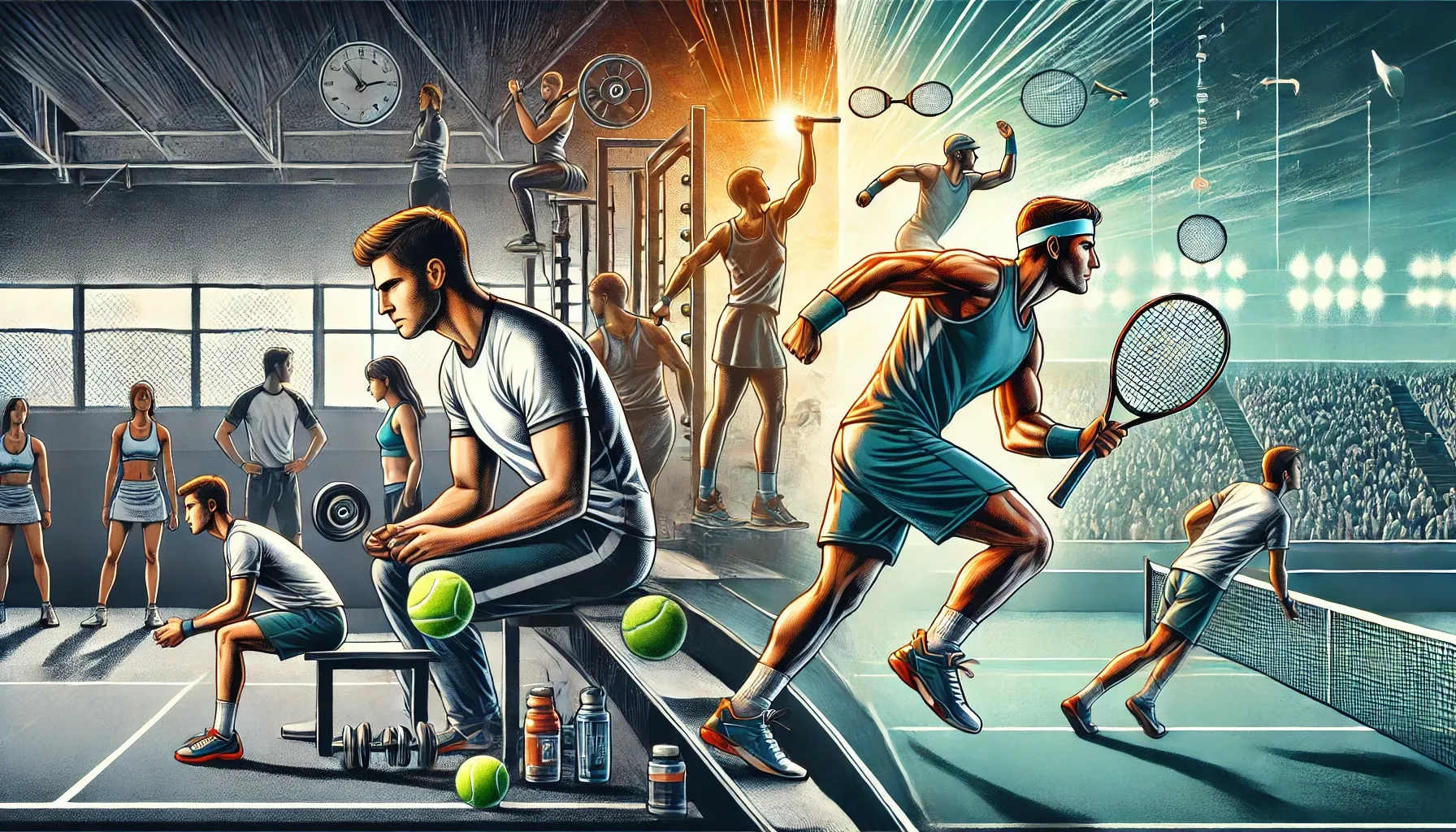The Importance of Physical Fitness in Match Play
Physical fitness is one of the most crucial elements in competitive tennis. A player's keenness and sharpness can only be achieved when the physical, mental, and nervous systems are in perfect harmony. Consistent and systematic training is essential for a tournament player to maintain peak performance.
The Role of Sleep and Nutrition
Maintaining Regular Sleep Patterns
Regular sleep is vital for maintaining physical and mental sharpness. Irregular sleep schedules can lead to fatigue, reduced focus, and poor reaction times on the court.
Balanced Nutrition for Peak Performance
Proper nutrition plays a significant role in an athlete’s performance. Some essential guidelines include:
- Eating well without overeating, especially before a match.
- Having a large and hearty breakfast on the day of a big match (before 9:30 AM).
- Consuming a light and balanced lunch (around 1 PM if playing at 3 PM).
- Avoiding rich, heavy foods before a match to prevent sluggishness.
- Avoiding heavy meals before bedtime to ensure optimal recovery.
The Dangers of Alcohol and Tobacco
Alcohol’s Negative Impact on Performance
Alcohol consumption during tournament play is detrimental, as it affects:
- Eye coordination
- Mental sharpness
- Stamina and endurance
Tobacco and Its Effects on Athletic Ability
While tobacco in moderation may not cause severe harm, it still negatively impacts eye coordination and lung capacity. Players who aim for long-term success should eliminate alcohol and tobacco completely.
Understanding and Preventing Mental Fatigue
The Threat of Staleness
"Staleness" is a major issue for players with long seasons of competition. Unlike physical fatigue, mental fatigue is caused by excessive focus on tennis without sufficient mental relaxation. Symptoms include:
- A growing dislike for the game
- Lack of interest in matches
- Decreased motivation and enthusiasm
Overcoming Mental Fatigue
To prevent staleness, players should:
- Take breaks from training and engage in different activities (e.g., attending concerts, theater, or socializing).
- Avoid overthinking or worrying about tennis outside of practice or competition.
- Maintain a balanced lifestyle with non-tennis interests to avoid burnout.
Proper Training and Recovery Strategies
Pre-Match Preparation
- Avoid getting chilled before a match to prevent stiffness and sluggishness.
- Engage in a proper warm-up routine to prepare the body for intense play.
Post-Match Recovery
- Never stand around in sweaty clothes after a match—take a warm shower immediately to prevent colds and stiffness.
- Change into dry clothes between matches when playing multiple times in a day.
- Avoid unnecessary risks that could lead to illness or injury.
The Impact of Crowd Psychology on Match Play
Winning the Support of the Crowd
Understanding crowd psychology is crucial in competitive tennis. The audience can sometimes influence the outcome of a match.
- The crowd often supports the underdog. If you're a consistent winner, expect favoritism toward your opponent.
- A bad call from an umpire may shift the crowd's sympathy.
- Players should never seek to antagonize the audience—it always pays to earn their respect.
Sportsmanship and Fair Play
- If you receive an unfair advantage from a wrong call, consider equalizing it by discreetly missing the next point. This gesture will be appreciated by your opponent.
- Avoid arguing with officials—it rarely changes the decision and only creates a negative image.
- Maintaining a positive attitude, even in frustrating situations, wins crowd support.
The Mindset of a True Competitor
Players who genuinely love the game tend to display great sportsmanship. The joy of competition should always take priority over personal frustrations. A positive attitude, coupled with fairness and integrity, will always earn respect—both on and off the court.


Comments
Post a Comment